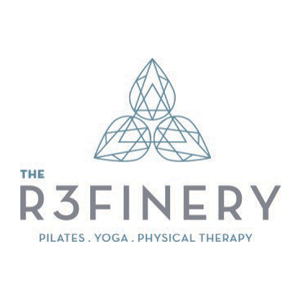What is Mindfulness? 10 Ways that You can Start Practicing Being Mindful Today
Nowadays, we hear about mindfulness all the time, but what exactly is it? Mindfulness is essentially being in the present moment, where you are not ruminating on the past or anxiously awaiting the future. Just simply being in the here and now.
According to research, “mind wandering” tends to be our brain’s “default mode of operation.” While this phenomenon gives humans the ability to reason, learn, and plan, researchers have found that it comes with an “emotional cost.”
Mindfulness is a practice that allows us to rewire and retrain our brains. Mindfulness practices have been shown to boost our moods, increase concentration, decrease anxiety, improve sleep, and alleviate pain, just to name a few of its myriad of benefits.
Beginning a mindfulness practice may seem daunting at first. We might think that we are not spiritual enough or need to meditate for hours on end in order to obtain this peaceful state of mind, but it can actually be achieved in quite simple ways. Mindfulness practices are ones that anyone can do, and we could all benefit from being more mindful in our lives.
Here are ten simple ways that you can start practicing being mindful today:
- Eat slowly. Really taste and savor the flavors and textures of the food you are eating and the beverages that you are drinking. Practicing mindful eating and drinking allows you to better appreciate the daily sustenance that nourishes our minds and bodies and provides us with the energy that we need to get through the day.
- When you shower or take a bath, notice the smell of your soap and shampoo. Feel the water on your skin, washing away all of the dirt and grime, cleansing you of the day.
- When you are in your car driving, just let yourself focus on that and only that. You might think that letting your mind wander while you do mundane tasks, such as your daily commute, would be better or possibly more productive, but it is actually the opposite. Research shows that a “wandering mind is an unhappy mind.”
- Pay attention to your breathing. What is your current breathing pattern? Is it short and quick or long and slow or possibly somewhere in between? This will help you begin to cultivate your relationship with your breath. They say that the most intimate relationship that we will ever have is the one with our breath.
- Observe your thoughts. No judging or shaming. Staying neutral, just notice what comes up, as if you were a person looking at your thoughts from the outside. Practicing this over time allows you to notice your thought patterns.
- Actively listen. The next time you have a conversation with someone, do not just listen to respond. Listen, not only with your ears, but also with your heart, to genuinely understand and connect with your fellow human.
- Notice your surroundings. What is happening around you? Is the warm sun shining down on you? Is the gentle wind rustling the leaves on the tree nearby?
- Engage your five senses. Name one thing that you can see, hear, smell, feel, and taste. This exercise helps bring you back into the present moment.
- Check in with your body throughout the day. Are you feeling tense or sore in a certain area? Do you need to stretch, move your body, or take a walk? How is your posture?
- Notice how certain emotions feel in your body and where they tend to show up in your body. Does it feel heavy, constricted, and tense or light, free, and open in your body? Does it come in waves or does it hit you all at once? When something makes you feel uneasy, do you feel it in your gut? Likewise, notice where the emotion resides in your body when you feel sadness, fear, anger, excitement, and joy.
While this is certainly not an exhaustive list, these are just some of the many ways that you can start implementing mindful practices into your daily routine today.
Sources:
Killingsworth, M. A., & Gilbert, D. T. (2010). A Wandering Mind Is an Unhappy Mind. Science, 330(6006), 932–932. doi:10.1126/science.1192439 https://www.science.org/doi/10.1126/science.1192439
Written by Ashley Lai, MSW, LSW – Clinician at Presence of Mind Therapy
The post What is Mindfulness? 10 Ways that You can Start Practicing Being Mindful Today appeared first on Presence Of Mind Therapy.






















Share On: